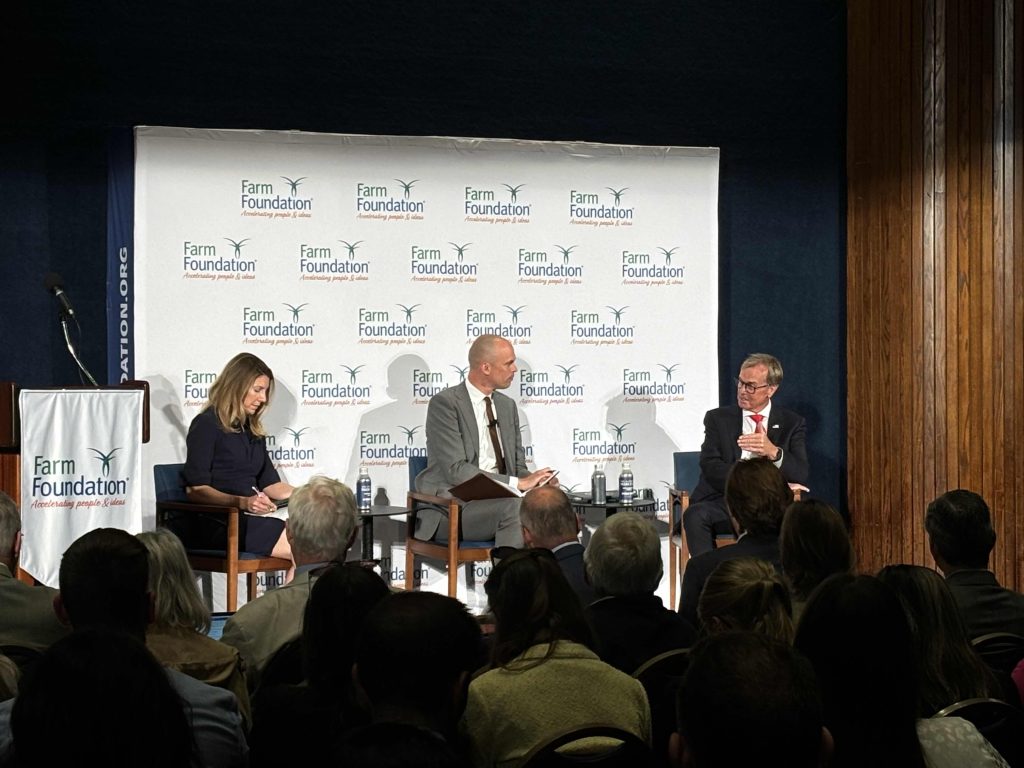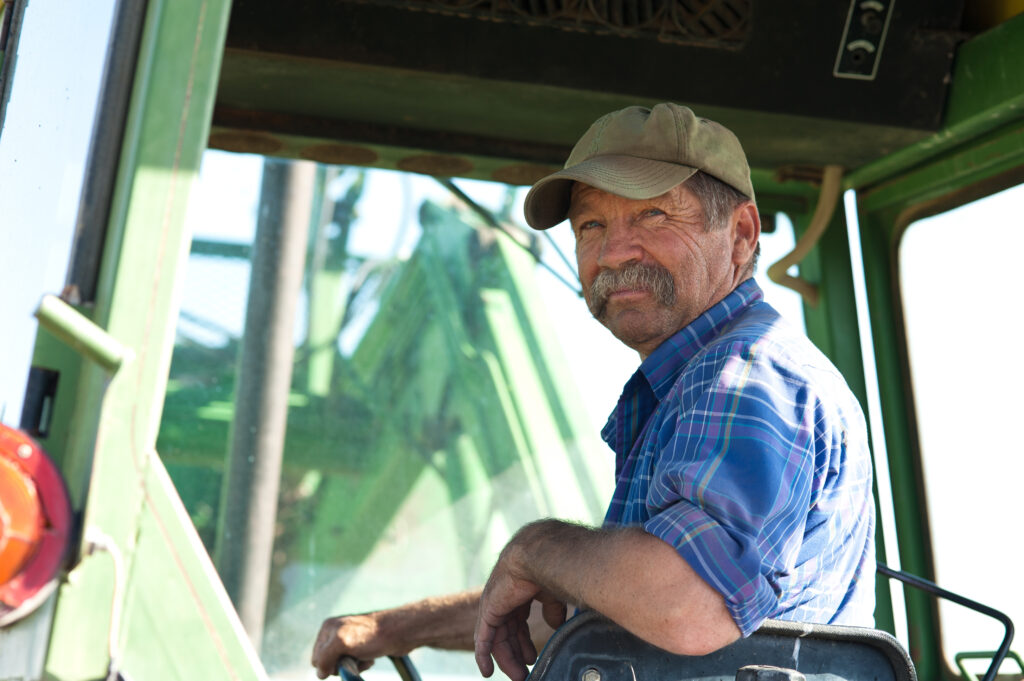As the country anticipated Tuesday night’s presidential debate, Farm Action’s focus was on an informal farm policy debate the day prior between representatives from the Democratic and Republican parties. Event attendees, including Farm Action co-founders Angela Huffman and Joe Maxwell, heard from representatives for Vice President Kamala Harris and former President Donald Trump.
Here’s a topline rundown of how the event went: Rod Snyder, former agriculture advisor at the Environmental Protection Agency, defended the Democratic agenda, warning that a Trump presidency meant “chaos and uncertainty” for the farm economy. On the Republican side, Kip Tom, leader of Farmers and Ranchers for Trump Coalition and former U.S. ambassador to the United Nations food and agriculture programs, used the platform to attack the Biden-Harris administration for its trade policy and regulatory overreach.
The event served as an early window into how both presidential candidates would approach agricultural policy in their administrations. As both begin to define their policy platforms, we note that neither the Harris nor the Trump campaign websites offer many details on their plans for agriculture policy.
The reality is that farmers are struggling. The U.S. has been losing farmers at an alarming rate — a decades-long trend which neither the Trump nor Biden-Harris administrations abated. Without a food system overhaul that addresses rampant consolidation across our food system, farmers will continue to struggle. Both candidates must identify more opportunities to reverse these trends and build a more resilient food system.
Digging into Trade and Specialty Crops
One hot-button issue of the day was trade policy. Snyder was particularly critical of Trump’s trade war, which he noted cost $29 billion in two years and “undermin[ed] markets that took decades for our farmers to build.” He cautioned against Trump’s plans to raise import tariffs up to 20% and as much as 60% on China, warning that this would hurt farmers by increasing the cost of inputs and hurting their export markets.
Tom blamed declining farm income and the growing agriculture trade deficit on the Biden-Harris trade policy. In contrast, he noted that Trump had a very effective trade policy, including major increases in trade, over 50 trade deals with China, and tariffs which are still in place under the Biden-Harris administration today.

Farm Action’s Joe Maxwell addressed the speakers from the audience, pointing out the fact that the agricultural trade deficit is being driven by an increased reliance on imports — specifically specialty crops — emphasizing that solely focusing on increasing exports will not balance the current agricultural trade deficit.
In response, both Snyder and Tom acknowledged the need to strengthen the specialty crop sector. Snyder highlighted crop insurance and other safety nets as opportunities for enhancement, whereas Tom emphasized the need for innovation and technology. Both pointed to labor and water issues.
In reality, the United States has grown increasingly dependent upon other countries to feed our people, threatening our national security. We must do a better job supporting specialty crop farmers. Snyder was absolutely correct in his remarks that we need to improve the crop insurance program so that it works better for more types of farmers. To support a more resilient specialty crop sector, we also need to expand market access and begin to rebuild regional food systems.
Checkoff Controversy
If you’re familiar with Farm Action’s work, you can guess how happy our team was to see checkoffs discussed at the forum. Farm Action has long advocated for the need to reform the commodity checkoff programs. Nationwide, checkoffs collect about $900 million from America’s farmers and ranchers every year, but instead of using this money to advance the interests of the farmers who pay into these programs, checkoff programs are riddled with collusive industry relationships and rampant misuse of funds.
Tom highlighted Trump’s commitment to farmers and called for more transparency and accountability in the administration of checkoff funds. Of concern, Snyder noted that “checkoffs are a tremendous success.” However, we note that then-Senator Harris did vote in favor of the Opportunities for Fairness in Farming Act — a key checkoff reform bill — during the 2018 Farm Bill debate. If her record is any indication of how she feels, Harris may also be in favor of increased transparency and accountability in the checkoff programs.
If we want to do what is best for farmers, we must reform checkoffs so that they can return to their original intent and purpose as a program that pools resources for research and promotion of shared commodities.
Back to the Kitchen Table Issues: Sky-high Food Prices and Price Gouging
As Farm Action has worked to expose rampant price gouging by food and agriculture corporations in recent years, we were pleased to see Snyder echo Harris’s call for a federal ban on price gouging. He also defended farmers in the face of food inflation, emphasizing that they are not the cause of high food prices. To lower food prices, he explained, Harris is instead focused on getting to the heart of anti-competitive concerns — giving new authority to the Federal Trade Commission and state attorney generals to impose penalties on some of the largest companies in the world that take advantage of emergencies and use their market power to drive up prices to pad their own pockets.
In contrast, Tom blamed high food prices on the Biden-Harris administration’s regulatory agenda, contending that “there isn’t a monopoly in the food system, none at all.” Instead, he called for more innovation: “They innovate to be competitive with each other.”
In this instance, Tom was deeply misinformed. As we demonstrate throughout our work, every sector of our food system is consolidated to such a high degree it is impairing the ability of our markets to function with all the necessary checks and balances of a healthy competitive market. As a result of this imbalance of power in which a handful of corporations control entire sectors, price-gouging has grown rampant.
This level of consolidation has impacted everyone across the food system, from farmers to workers to consumers. A federal ban on price-gouging is an important step towards ensuring a more fair food system. We need more robust antitrust enforcement and federal legislation to ban price gouging in order to begin to rebuild a more fair and competitive market.
Written and edited by: Sarah Carden, Jessica Cusworth, and Emma Nicolas. Concept developed by Angela Huffman and Joe Maxwell.




